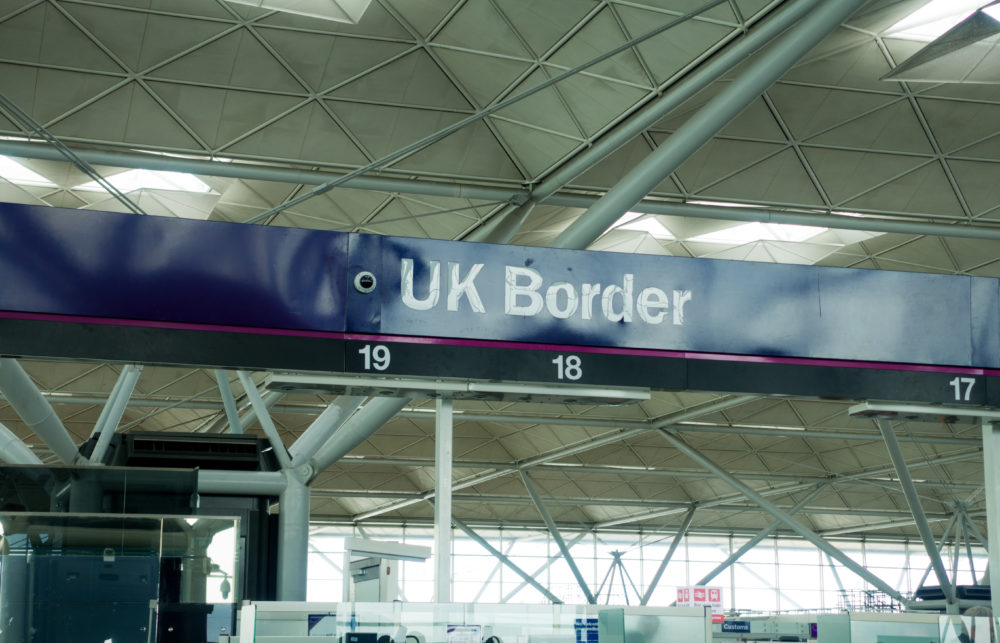Small businesses need to be aware of changes to their obligations that will help prevent illegal working, the changes having being introduced from the May 16th. Clearly it is an offence to employ someone who does not have the right to work in the UK. Employers must be able to show that they have taken steps to ensure that their employees are not illegal workers. A new statutory code of practice has been issued in this area.
Acceptable documents
There are two lists which contain documents considered as acceptable for demonstrating the right to work in the UK – the lists have been amended by the new Code. There are no great changes but the lists appear streamlined and List B has been split.
If the documents checked are from List A, the employer will establish a continuous statutory excuse i.e. the person’s eligibility need never be checked again.
| List A – Acceptable documents to establish a continuous statutory excuse | |
| 1. | A passport showing the holder, or a person named in the passport as the child of the holder, is a British citizen or a citizen of the UK and Colonies having the right of abode in the UK. |
| 2. | A passport or national identity card showing the holder, or a person named in the passport as the child of the holder, is a national of a European Economic Area country or Switzerland. |
| 3. | A Registration Certificate or Document Certifying Permanent Residence issued by the Home Office to a national of a European Economic Area country or Switzerland. |
| 4. | A Permanent Residence Card issued by the Home Office to the family member of a national of a European Economic Area country or Switzerland. |
| 5. | A current Biometric Immigration Document (Biometric Residence Permit) issued by the Home Office to the holder indicating that the person named is allowed to stay indefinitely in the UK, or has no time limit on their stay in the UK. |
| 6. | A current passport endorsed to show that the holder is exempt from immigration control, is allowed to stay indefinitely in the UK, has the right of abode in the UK, or has no time limit on their stay in the UK. |
| 7. | A current Immigration Status Document issued by the Home Office to the holder with an endorsement indicating that the named person is allowed to stay indefinitely in the UK, or has no time limit on their stay in the UK, together with an official document giving the person’s permanent National Insurance number and their name issued by a Government agency or a previous employer. |
| 8. | A full birth or adoption certificate issued in the UK which includes the name(s) of at least one of the holder’s parents or adoptive parents, together with an official document giving the person’s permanent National Insurance number and their name issued by a Government agency or a previous employer. |
| 9. | A birth or adoption certificate issued in the Channel Islands, the Isle of Man or Ireland, together with an official document giving the person’s permanent National Insurance number and their name issued by a Government agency or a previous employer. |
| 10. | A certificate of registration or naturalisation as a British citizen, together with an official document giving the person’s permanent National Insurance number and their name issued by a Government agency or a previous employer. |
If the documents checked are from Group 1 of List B, follow-up checks are required at the point that permission expires. Previously, an employer had to check List B documents annually. At the point permission expires, if the employer is reasonably satisfied that the employee has an outstanding application to extend their permission, the excuse will extend for 28 days. This extension is there to allow the employer to verify where the application is up to by contacting the Employer Checking Service to receive a Positive Verification Notice which confirms the employee has the right to continue working. If the employer receives a Negative Verification Notice, employment should be terminated.
If the documents checked are from Group 2 of List B, or the employee/prospective employee is not able to present an acceptable document because of an outstanding application, the employer must contact the Employer Checking Service to receive a Positive Verification Notice to preserve the statutory excuse. The statutory excuse will last for six months, upon which a further check is required.
| List B – Acceptable documents to establish a statutory excuse for a limited period of time | ||
| 1. | A current passport endorsed to show that the holder is allowed to stay in the UK and is currently allowed to do the type of work in question. | |
| 2. | A current Biometric Immigration Document (Biometric Residence Permit) issued by the Home Office to the holder which indicates that the named person can currently stay in the UK and is allowed to do the work in question. | |
| 3. | A current Residence Card (including an Accession Residence Card or a Derivative Residence Card) issued by the Home Office to a non-European Economic Area national who is a family member of a national of a European Economic Area country or Switzerland or who has a derivative right of residence. | |
| 4. | A current Immigration Status Document containing a photograph issued by the Home Office to the holder with a valid endorsement indicating that the named person may stay in the UK, and is allowed to do the type of work in question, together with an official document giving the person’s permanent National Insurance number and their name issued by a Government agency or a previous employer. | |
| Group 2 – Documents where a time-limited statutory excuse lasts for 6 months | ||
| 1. | A Certificate of Application issued by the Home Office under regulation 17(3) or 18A(2) of the Immigration (European Economic Area) Regulations 2006 to a family member of a national of a European Economic Area country or Switzerland stating that the holder is permitted to take employment which is less than 6 months old together with a Positive Verification Notice from the Home Office Employer Checking Service. | |
| 2. | An Application Registration Card issued by the Home Office stating that the holder is permitted to take the employment in question, together with a Positive Verification Notice from the Home Office Employer Checking Service. | |
| 3. | A Positive Verification Notice issued by the Home Office Employer Checking Service to the employer or prospective employer which indicates that the named person may stay in the UK and is permitted to do the work in question. |
|
Students
The new code makes clear that, for students who have time-limited permission to work during term-times, employers must also get a copy of their academic term and vacation times covering the duration of their period of study in the UK for which they will be employed.
TUPE transfers
Employers who acquire staff as a result of a TUPE transfer are provided with a grace period of 60 days from the date of the transfer to correctly carry out their first statutory document checks. This period has increased from 28 days.
Penalty
Where an employer can show that they complied with the necessary steps in relation to checking documents, they will have a ‘statutory excuse’. Where an employer does not have a statutory excuse, the maximum fine is £20,000 per illegal worker. This has increased from £10,000.





